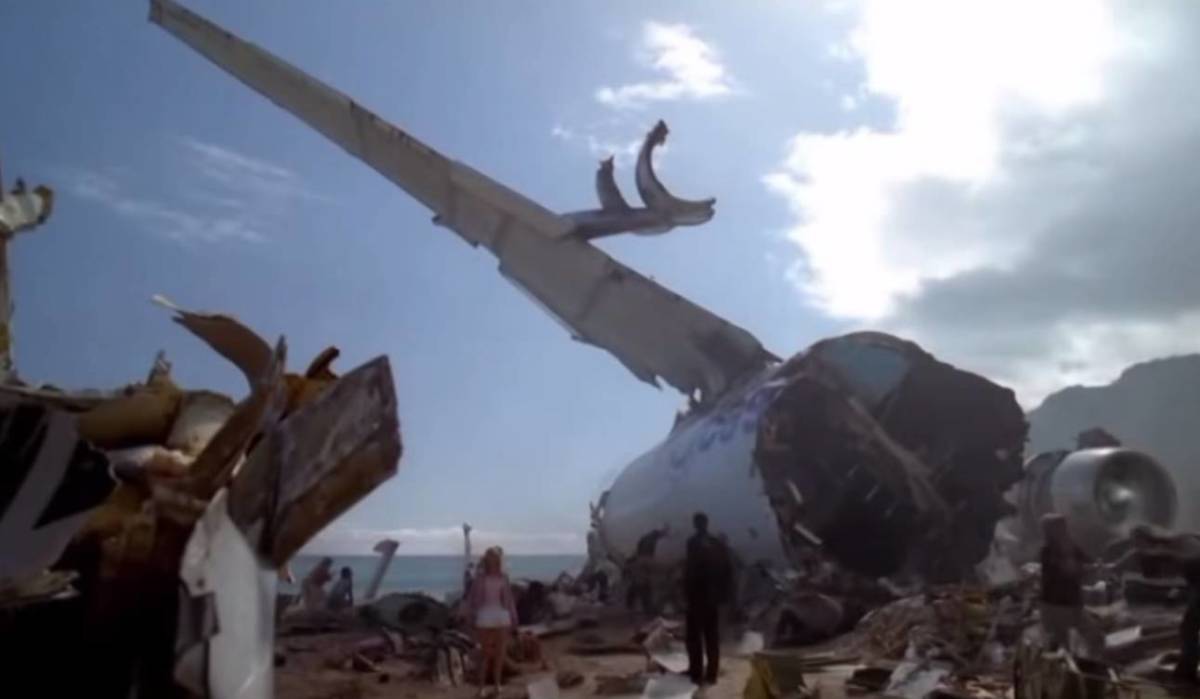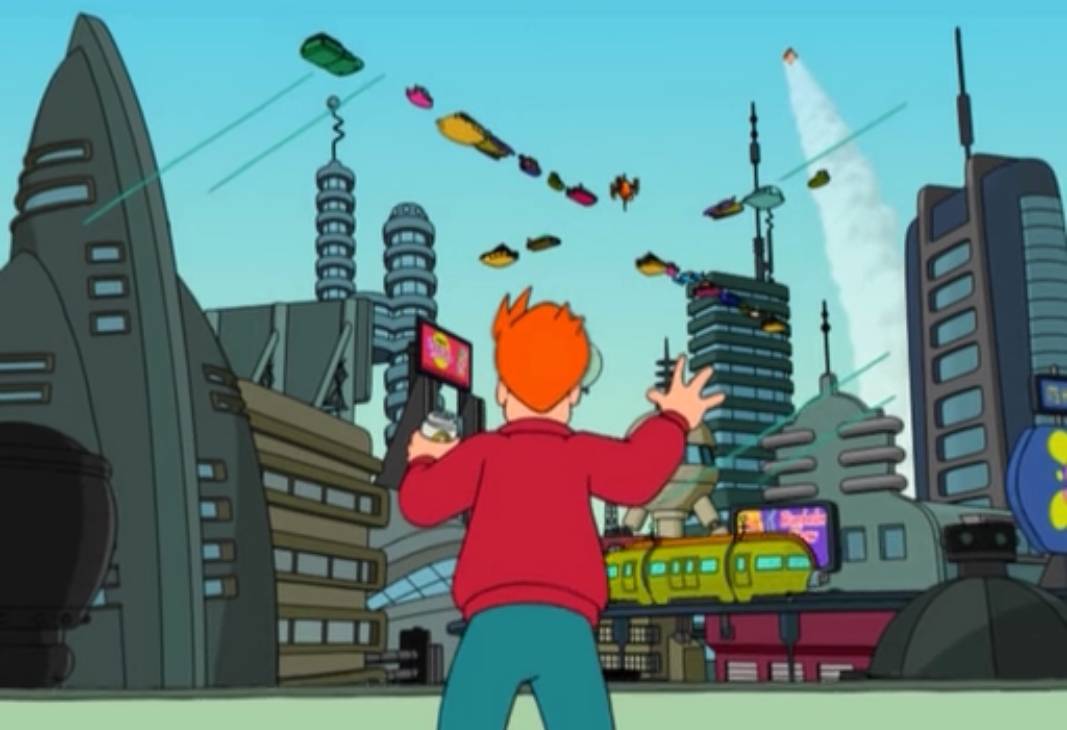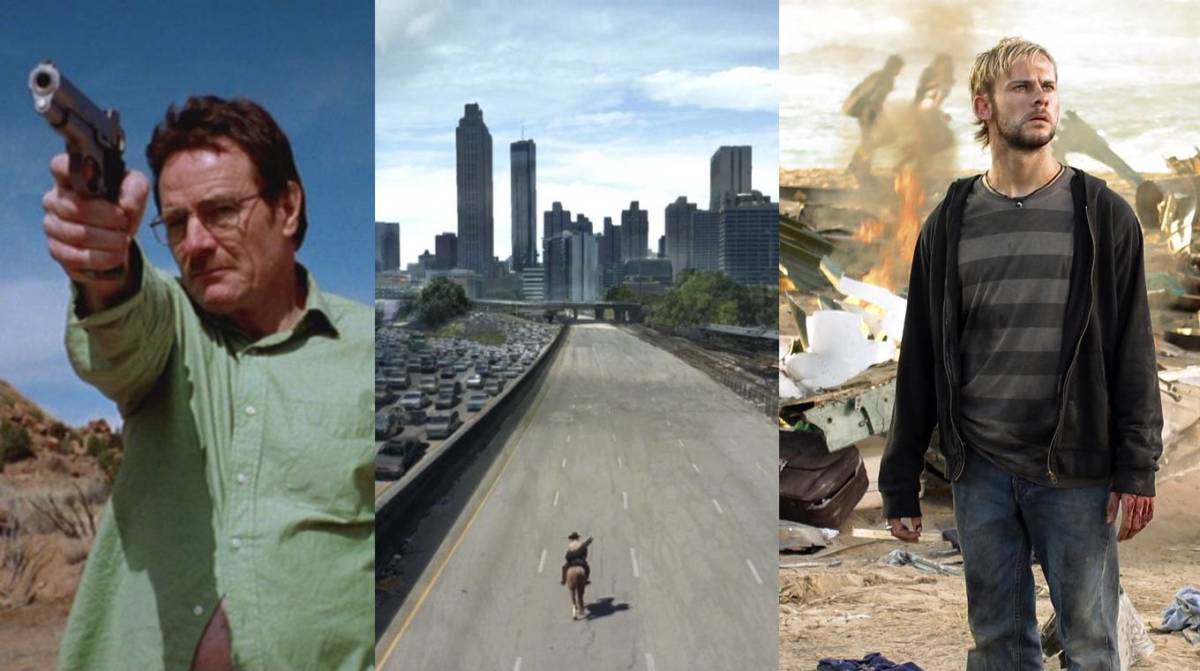To butcher an old saying – every TV show starts with a single ep’. What’s more, it had better be a good one. Your pilot episode is your first contact with the enemy, it has to prove itself to both the cynical moneymen at the network and also to the increasingly jaded viewing public. Maybe with a few seasons under your belt you can get away with treading water, but with that first salvo you’ve got to shine (or have some crooked deal where you’ll get at least a couple seasons because there was some money left in the quarterly budget and it had to go on something).
I digress. We both know there’s plenty of shoddy TV out there – this list is about some of the greatest. Specifically, the greatest pilots, the episodes that could make test audiences go back and ask for some more.
1. Lost

No matter how infinitesimal the odds that anything will go wrong with the plane you’re riding, there’s always that little worry gnawing on the back of your mind, isn’t there? What if the wings fall off? What if we crash and get stranded on an island and I have to eat that guy who got the window seat? What if something goes wrong?
While Lost didn’t go the ‘most dangerous game’ route, this was the real-life nightmare scenario the pilot episode threw us into. The survivors, barely free of the wreckage of the plane, then found this wasn’t any ordinary isolated island when they were jumped by – of all things – a polar bear. And this quickly turned out to be far from the only inexplicable gribbly monster lurking out there in the jungle.
The survivors also brought their share of mysteries to the table. First and foremost there was what happened to the plane, but everyone had some backstory, with varying degrees of mystery to them – which the pilot slowly began to delve into through flashbacks of just what was happening on the plane before it went down.
Mysteries always come with the tantalising promise that there will eventually be a solution. This was the charm of Lost, and it was on exactly this basis that creator J. J. Abrams got ABC to commission it in the first place, promising he had answers for every question raised. He was in fact lying, but ABC weren’t to know that, and when the pilot came out the viewers at home weren’t either.
2. Battlestar Galactica (2004)
‘33’ represented a definitive break from the sci-fi traditions of planet-hopping space opera. The word ‘gritty’ is terribly overused, but there’s no better description for the situation this pilot gave us – thrown straight in with the remains of the human race as they frantically flee the Cylons while deprived of sleep. The likes of Star Wars never had people’s nerves fraying because they were going to pass out from exhaustion.
(On a side note, while Trek Wars and its imitators are to this day still fumbling their women characters, Battlestar unapologetically cast Katee Sackhoff as hotshot pilot Starbuck – and despite criticism from Dirk Benedict, the original Starbuck from 1978, she made the role her own.)
Neither did the classics of the genre give anywhere near as much of the characters’ interiors. Right off the bat, the pilot was happy to deal with dream sequences and the voices in people’s heads – particularly those of scientist Gaius Baltar, whose thoughts keep being dragged back to a blonde Cylon who confronts him with questions about religion. These sorts of big questions came up a lot on Battlestar – with the entirety of humanity crammed into spaceships, there was a constant tension between military interests, political interests, and the ever-ill-defined will of the people.
Sci-fi’s full of memorable villains, and the clunky, red-eyed Cylons are up there – yet this pilot made the claustrophobic choice to leave the pursuing Cylon ships in the background, as a looming, monolithic threat. The focus, after all, is decidedly on our protagonists, struggling to cope with the constant pursuit. But the show absolutely breaks with sci-fi tradition when – convinced that the Cylons are tracking a ship called the Olympic Carrier – the President, rather than figure out some way of saving the Carrier in just the nick of time, has it destroyed.
This willingness to grapple with heavier subjects typified Battlestar – it was, after all, created and aired in the wake of 9/11 and the War on Terror. While the pilot wasn’t an outright allegory, the protagonists’ fears that the Carrier might have Cylon agents aboard is directly informed by real-world panic over sleeper cells and so forth. However, the pilot doesn’t make the mistake of descending completely into nihilism like 24 and its constant pondering of ‘how can things get worse?’ – it ends on the upbeat note that the population of humanity, noted for posterity on a whiteboard, has ticked up by one.
3. The Walking Dead

As popular as the zombie apocalypse genre is, very few works actually depict the ‘apocalypse’ part – probably the most recent to have a crack at it was the film adaptation of World War Z, and we know how that turned out. The overwhelming majority prefer to start after the apocalypse has burnt itself out, with the survivors picking their way through the ruins in a Hobbesian state of nature.
The Walking Dead began in much the same way as 28 Days Later, another classic of the genre, with our protagonist, Andrew Lincoln’s Rick Grimes, having missed out on the actual apocalypse due to being comatose in hospital. But while 28 Days Later’s Cillian Murphy was a bit of a placeholder everyman – indeed, a bit too much of an everyman, helplessly leaning on the long-suffering Naomie Harris until the climax – Rick is capable enough to come at this post-apocalypse head on, and likable enough that even eight full years later the fans would rather die than see him leave. And as impressive as it was seeing London completely deserted, it’s simply not as cool as riding into Atlanta on horseback.
And while we – and Rick – may have missed the event, there’s plenty of clues as to exactly how it went down and how bad it was. When he moseys into Atlanta, the road into town is clear, but the road out, that’s a different story. It’s still gridlocked beyond all redemption, or as zombies call that situation, ‘canned food’. Or take that first camp Rick stumbles across, the ground strewn with dolls and prams and tiny little clothes – it’s not for nothing that photos of abandoned children’s toys in warzones became a go-to way to drum up poignancy.
While the show didn’t yet have the hefty cast list it would become known for, it did introduce Lennie James’s Morgan, who gets the obligatory scene where he comes up against a zombified loved one, and Steven Yeun’s Glenn (albeit only in voice form), who quickly became one of the most popular members of the ensemble. It also gave Rick a crumb of hope by letting him know that his wife, son, and partner were safe somewhere out there – and gave the viewer something to root for.
4. Breaking Bad
The first series of Breaking Bad was a fairly slow burn – heavy on scenes about the family having breakfast, and Walt was still actually turning up to his high school chemistry class, believing he could balance that with his second job as a meth cook. There wasn’t yet any sign of larger-than-life personalities like Saul or Mike or Gus, coming in to steal every scene they could get their grubby paws on.
However, it was mainly this sedate because it was, for the most part, clearing up the mess produced by the events of the pilot, which went straight from zero to a hundred. The show was advertised on the strength of the breathless proclamation that ‘it’s the dad from Malcolm in the Middle, only he’s got cancer and starts cooking meth!’ – and, as such, had to deliver on all that quick-smart.
Within twenty minutes we’d met the guy, seen his life, and knew exactly why he’d want to make the leap into high-end drug manufacture. Before the hour was up Walt and Jesse were screaming along a desert road in an RV full of toxic fumes to the wild, shirtless Latin sounds of Molotov’s ‘Apocalypshit’, with one batch of crystal and one severe blunder under their belts.
This was the first bound of Walt’s inexorable journey into becoming a full-blown drug lord, and ultimately his violent death – leaving behind him a shattered family and any number of dead Hispanic men. All the seeds of this Greek tragedy, though, were there from the beginning. In the pilot’s cold open – the first time we meet Walt – he’s saying a verge-of-tears goodbye to his family, convinced he is about to cheat justice by committing suicide-by-cop.
5. Futurama

Coming from Simpsons creator Matt Groening and collaborator David S. Cohen, the show that rang in the new millennium had a mighty high bar to vault – and it did so masterfully. Right off the bat it teased us with a Star Trek-style opening monologue, which turned out to be Fry’s description of the Donkey Kong spin-off Monkey Fracas Jr. Fry, at this point, wasn’t the stone dimwit he quickly became, but was rather your quintessential lovable loser – stuck in a terrible job with a dick boss, chucked by a callous girlfriend, and secretly praying for something, anything, to change.
Fast forward 1000 years.
Seconds out of the cryogenic tube, Fry is in a world which immediately establishes itself as homage to sci-fi in all its forms. He has a run-in with a hot cyclops, goes for a beer with a kleptomaniac robot, and meets up with his distant descendant, a clichéd mad scientist. Policemen beat him with lightsabers (“Please, officers, there’s no need to use force!”) and the preserved head of Leonard Nimoy chows down on fish food.
This pan-sci-fi setting allowed the uber-geeky in-jokes that kept creeping into The Simpsons to go into overdrive – Bender’s malt liquor of choice is ‘Olde Fortran’ (after a programming language), and New Year’s Eve 2999 is accurately given as a Tuesday. The pilot also had time to set up one of the series’ most significant recurring plotlines via shadows on the floor, and establish that the Professor’s previous crew met their fate at the hands of space wasps, which wouldn’t come up again until the third season.
Although series regulars Amy, Hermes, and Dr. Zoidberg (also Zoidberg!) wouldn’t be introduced until the second episode, the pilot successfully introduced a futuristic yet familiar society inside half an hour. Fry was possibly the perfect everyman companion to this brave new world – it was his swift adaptation to the 31st century that eventually had the writers rejig him as a dunce, but here, before he had the chance to acclimatise, he served as an exemplary and enthusiastic fish-out-of-water viewpoint character.
Any other pilots you think should have been up there with the best? Let us know in the comments!
Some of the coverage you find on Cultured Vultures contains affiliate links, which provide us with small commissions based on purchases made from visiting our site. We cover gaming news, movie reviews, wrestling and much more.



